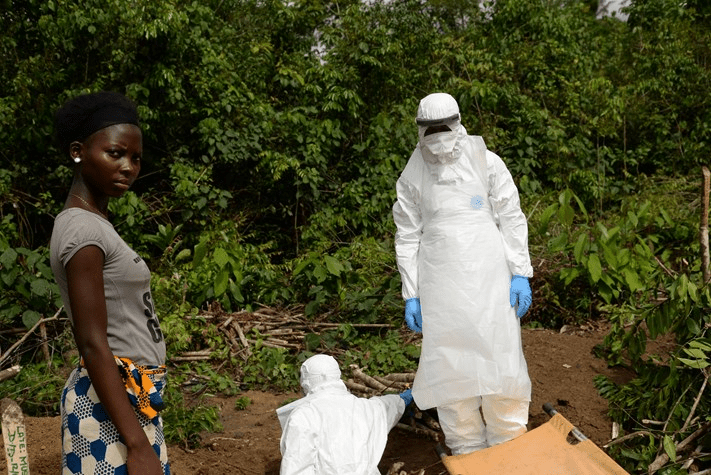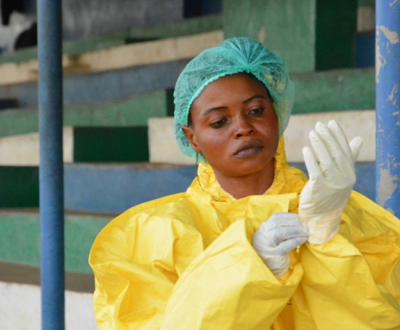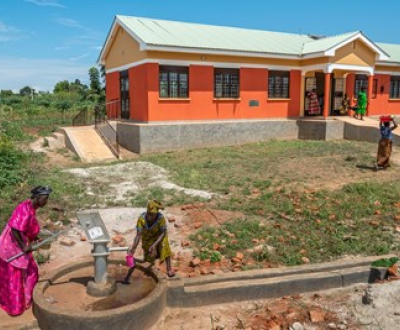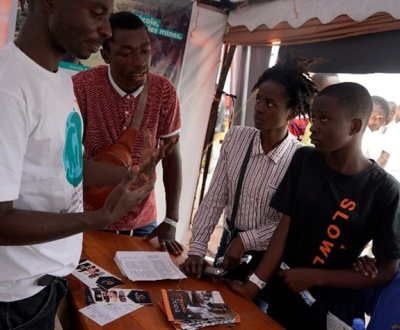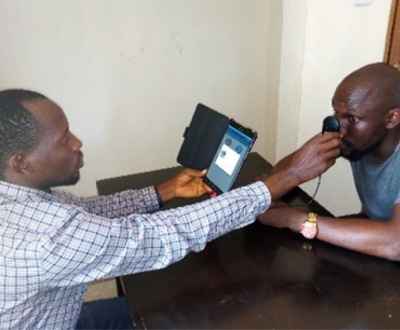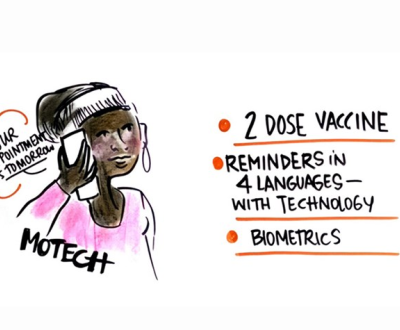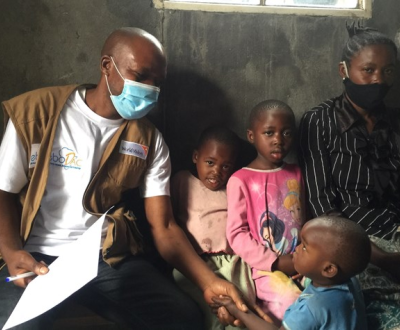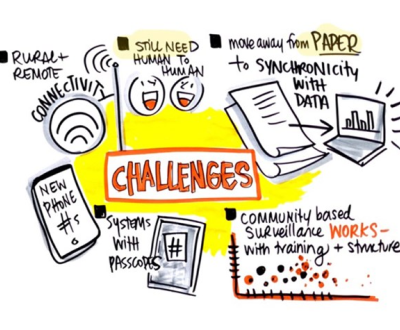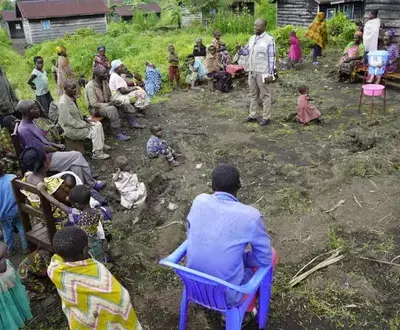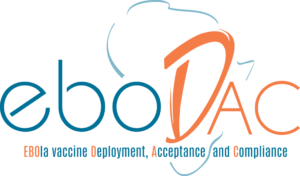
What is EBODAC?
In response to the ongoing Ebola virus crisis, the Ebola Vaccine Deployment, Acceptance and Compliance (EBODAC) consortium has been developing strategies and tools to promote the acceptance and uptake of new Ebola vaccines, to help the right persons receive the right vaccine at the right time. According to the WHO, good outbreak control relies on a package of interventions namely, community engagement, contact tracing and social mobilisation.
EBODAC used community engagement, enabling technologies such as iris scanning and phone messaging as well as clear communication methods to build trust and address misconceptions surrounding the vaccine in the community. EBODAC worked to build local knowledge and capacity and strengthen health systems by working with Ministries of Health and Community Health Workers by providing training and preparedness activities for the potential future deployment of a licensed vaccine.
Introduction to EBODAC
Our consortium partners
Country focus
"Perhaps the most important lesson I have learned, working with individuals, faith leaders, health workers and communities to ensure 130,000 people received a two-dose vaccine, is how much we all need compassion and empathy. It is understandable that people are scared and tired and frustrated. Telling them they’re wrong to be opposed to a vaccine doesn’t help; working with them to think critically about their sources of information is far more effective."
Robert Kanwagi - World Vision's EBODAC coordinator
Tools, methodologies and technologies
The EBODAC consortium has also developed a number of innovative technologies to enhance participant identification and retention in the trials.
